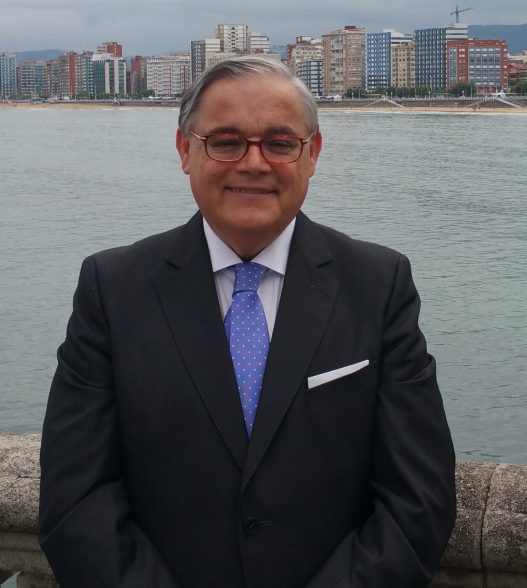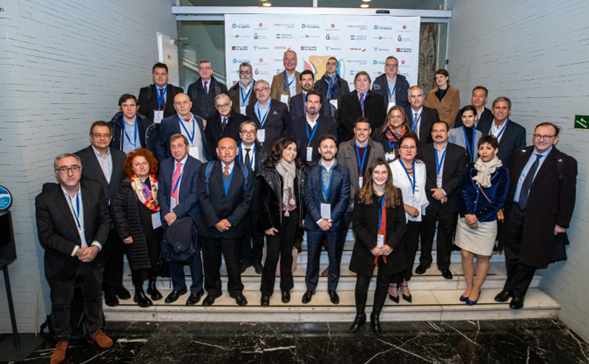ALBERTO BARCIELA
COMMUNICATION, THE POWER SPLIT

Communication has transcended physical, geographical and political structures. Technology has overflowed frontiers, has broken down barriers and with them almost everything known as traditional, pre-established, understandable and assumed. The culture of informing, educating and entertaining has been replaced by transgressive technical approaches, not without advantages but with many risks.
Now, almost everyone considers himself to be an informer, a misinformer, an emitter, without ceasing to be a receiver. The result is an uncertain gibberish of noises, of overexposures, of new contingencies, in which what we knew and exercised as journalists seems to be like a flying leaf reconverted into an unimportant paper airplane. At least that is what it seems in the hurried analysis, in accordance with the digital, virtual and increasingly artificial times in its intelligence (AI). The fourth power has been diluted, it also appears to be so, in an abundance of constructed truths, lies, appearances, circumstantial successes and swindles.
The image, and we live shielded, facilitates the access, not the comprehension, of what we see, of what is apparently real. But more information and immediacy is not more truth, nor more freedom. It is difficult to make predictions, posterity lasts less and less, in today’s everyday life, leisure is confused with expense, notoriety with merit, luck with effort.
Equality is dying in a world that claims to be tending towards parity and in which the weak are becoming weaker and weaker, an exposed being.
The future does not exist, or rather it seems so, because as in a bad joke, the future was yesterday, at least, for the printed paper that, with rare exceptions, rather linked to opinion, expires in the transit from the presses to the already scarce newsstands. Now, what is relevant changes every millisecond without taking into account precedents, without being influenced by what happened or is happening at the moment and without estimating consequences, without contrast, it is enough to transfer everything to a recyclable screen, regenerable in seconds.
The journalist, as a citizen, must remain in a state of perpetual amazement, must not be condescending, must continue searching for the truth to tell it or to unmask the fake news industry and the criminals and intoxicators. It has to do it with attitude and skills, with more or less style, but with the unappealable rigor, demandable for those who exercise an unmarked vocation that demanded and claims the assumption of a demanding deontology.
Social networks are the dominant media today, as they were in other times novelties such as the printing press, the press, radio or television. The universality of access to communication, not yet assured for all, is in itself good, but it has somehow lost the role of the professional communicator, of journalistic, radio or television companies, even of advertising companies. The economic sources have therefore been disrupted, and the results, intentions and influences have been conditioned.
The traditional disappears: the ceremony, the ritual, the prescriptive and consubstantial, that which unites us to the tribe, to what we consider our own, understandable, evaluable, disappears, in its physical forms and in its substance. The notorious is imposed on the relevant. Risks are disregarded for the sake of the inconsequential, of what is destined to be short-lived, whatever the dimension of the nonsense or the achievement. Posterity, I repeat, lasts less and less, perhaps it also matters less in a disbelieving world willing to live the moment without further ado.
In reality, global society is the result of the sum of fragments, of the individual, an exponential and unreflective addition. Citizens, not only informers, participate and consume, we acquire contacts whom we recognize as friends, devaluing the social relationship to a simple “I accept” or “I like”, or an emoticon. We exhibit our intimacy and compare it, we demand more from ourselves than we can give or acquire. We survive in the moment, without opting for balanced medium or long-term approaches. We certainly accept what pleases us and reject bad news or we join causes that may be acceptable but that we are almost always far from understanding. We do not even have time to have them explained to us by experts. We achieve achievements in the immediate but not security, weight, stability. And we take refuge in individual salvation, in a path of asceticism, loneliness, uneasiness, boredom and “mirror consolation” – the one that encourages on the basis of other people’s misfortunes. The result is what it is. And this is a verifiable truth for everyone.
Already 25 years ago, a quarter of a century ago, Ignacio Ramonet warned: The value of information does not depend on its relation to truth, but essentially on the number of people susceptible of being interested in it. It is more and more a commodity.
We will have to talk about all that, debate it, at the VII Congress of Media Editors Europe – Latin America to be held in Madrid and Brussels between March 18 and 21 under the slogan “The quality of information and the credibility of the media, guarantees for democracy.” And the fact is that journalists know what is at stake and we must warn again before our paper illusion or our digital mission is squeezed irremediably.
————
Alberto Barciela, Spanish journalist, is vice-president of EditoRed.
This text is free to use. If you use it, please cite the author and EditoRed.


